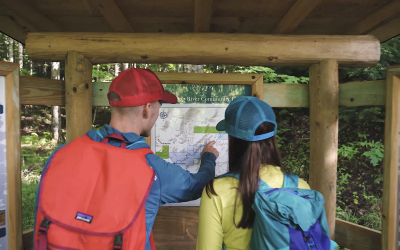How much tourism revenue stays in your community?
Tourism, at its best, can make an immensely positive impact on your destination. It can help preserve local culture and traditions, protect the environment and provide jobs to residents. But how much tourism revenue directly rewards your community’s hard work? If too much revenue tends to leave, your organization might have some work ahead to stop tourism leakage by changing the business mix.
First, let’s recognize that traditional economic metrics are inadequate for today’s world. Destination marketing organizations (DMOs), politicians and other tourism stakeholders that lobby for tourism investments tend to cite familiar statistics like the number of jobs gained, the dollar value of the tourism industry, and the total number of visitors. These estimates often appear in reports and press releases. Sometimes they’re significant. But they only tell a slice of the story of tourism in your area and how your DMO’s activities impact those metrics.
Measuring tourism’s impact requires more specificity to address current challenges. To effectively manage your destination through recovery from COVID-19 and beyond, you’ll need to understand economic value as part of a system that goes beyond revenue. The system also includes social, cultural and environmental well-being. Tourism leakage reveals economic struggles that can greatly affect the whole picture.
Tourism leakage occurs when revenue generated by tourism is lost to outside economies. The cumulative effects of actions like buying an imported souvenir or staying in a foreign-owned hotel can be significant. Developing nations are particularly hard hit. In Fiji, it is estimated that 60% of the money earned through tourism ends up leaving the island nation. In another study, tourism leakage estimates range from 40% in India to 80% in the Caribbean.
This chart by beachmeter.com shows a breakdown of how tourism dollars are often distributed.
Holiday spots with high tourism leakage are left to absorb the negative effects of tourism and no way to pay for the damage. Tourism infrastructure and services need to be maintained. Often, the local environment is also left in a vulnerable position. In 2018, Maya Bay on Thailand’s Ko Phi Phi Leh island was closed to let its ecology recover from the damage caused by thousands of daily visitors. The closure of such a popular attraction is especially devastating in a place like Thailand, where tourism generates 11% of national GDP. At the same time, 70% of money spent by tourists leaves the country. Local tourism operators who perhaps already faced a reduced profit margin are left with even fewer opportunities.
People and places are not commodities. A healthy tourism industry will instead treat places as living entities. It will avoid giving residents and their local environments the bill for mass tourism. Forward-thinking places like New Zealand’s Bay of Plenty – a Destination Think client destination – lead the way with a regenerative approach that emphasizes human and ecological flourishing.
DMOs need new metrics to help them manage high-value tourism that benefits everyone. Places need to measure the net economic benefit to the community (accounting for tourism leakage). Beyond leakage, other key performance indicators include the local environmental cost, the global environmental cost (for example, assessing the carbon footprint per traveller dollar) and resident quality of life.
These metrics more accurately describe valuable tourism. Instead of attracting more visitors to raise more revenue, your destination can focus on reducing leakage to bring economic value without additional visitors.
Examine the business mix in your destination. How can your DMO adjust the mix to keep more value in your community? This is the way to help residents – your neighbours – live a better life in a place that flourishes.
Feature image credit: Photo by Jonathan delange on Unsplash










At Justice Tourism Foundation We believe that travel has the power to transform lives. We therefore promote holidays that aim to improve the lives of local people in communities in Uganda and contribute to reducing poverty. We work under principles of fair trade and sustainability using tourism to create equitable opportunities for local communities and to increase the social, economic and environmental benefits for host communities in support of many United Nations Sustainable Development Goals, including education, access to clean water, environmental conservation, gender equality, and the preservation of diverse and indigenous cultures while giving travelers the chance to explore Uganda through customized trips (tours). We want to see that part of your tourism dollars are benefitting the local communities at the tourism destinations – the people they meet, places travelers stay and ecosystems they visit. It is a big part of our decision making when we organize our trip series.
The world-wide challenge for accommodation and adventure tourism businesses are the high commissions they pay out to 3rd Party booking websites. This fact alone removes 18% to 30% from the bottom line and gone from the community. If travellers were aware of this, travel booking patterns may just change. What is rarely mentioned is that the prices of rooms are often lower on the actual website of the tourism business. And in many cases tourism businesses would beat the price listed on 3rd Party Booking websites because it is cheaper than paying out the commissions.
That’s a great observation, Greg. Booking direct always helps local businesses this way.